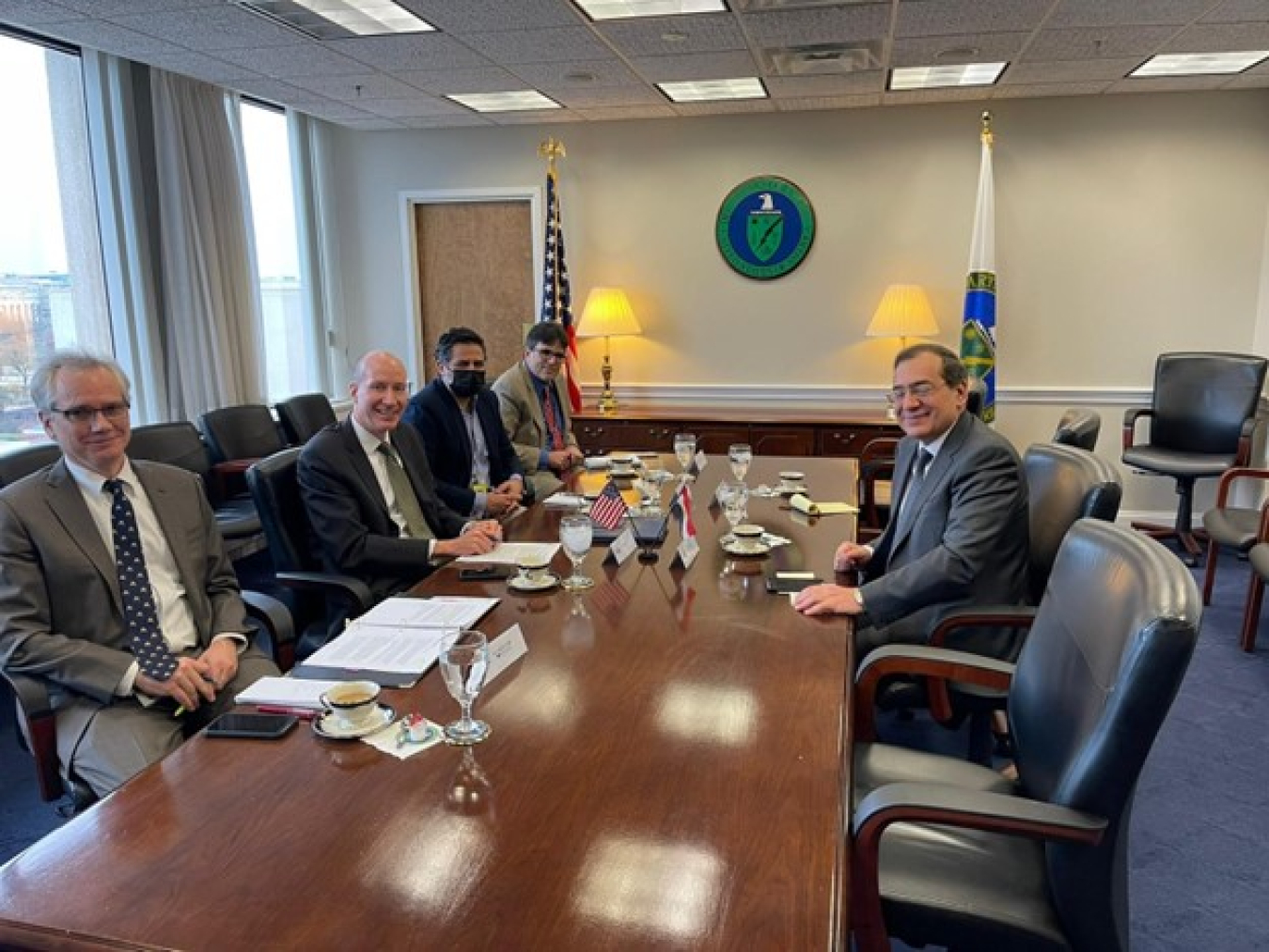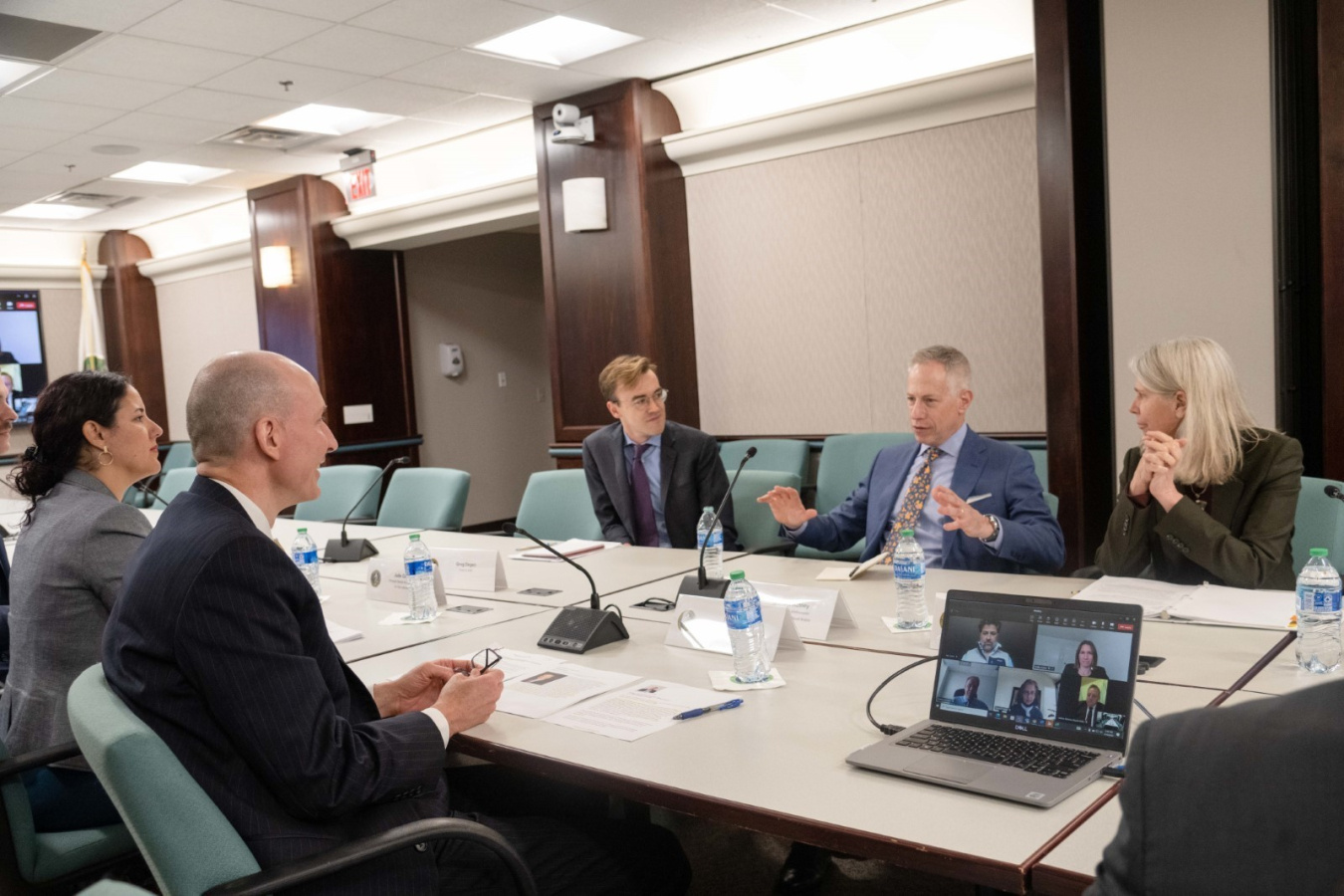
Who We Are
The Office of Middle Eastern and African Affairs guides the Department’s work with partner countries and international organizations in the region in support of the Department’s mission. The office is focused on strengthening the United States’ bilateral and multilateral relationships with key international partners, such as Saudi Arabia, Qatar, United Arab Emirates (UAE), Egypt, Israel, Morocco, Nigeria, Kenya, Ghana and South Africa in close collaboration with interagency partners, and Department program offices and laboratories.
The Office works to advance the Administration’s climate goals and support the United States investment and collaborative partnerships in clean energy technology and deployment. Its programs and initiatives leverage the Department’s expertise to help partners identify opportunities and work through challenges that will ensure energy access, enhance energy security, and foster development that moves them toward a decarbonized economy and a net-zero future.
Initiatives
BIRD Energy and U.S. Israel Energy Center
These programs, which are administered by the BIRD Foundation, promote investment in innovation by fostering collaboration between U.S. and Israeli companies, government, and academic institutions. From 2009 to 2021, the BIRD Energy program has funded 60 projects with a total government investment of approximately $47.5 million. The initiative has attracted more than $840 million in venture capital and other follow-on investment to commercialize clean energy technologies. BIRD Energy grantees that went public raised $149 million. The US-Israel Energy Center is administered by the BIRD Foundation. There are four consortiums established since 2018 promoting research in innovation in the water energy nexus, fossil energy innovation, battery storage, and cyber.
Net Zero Producers Forum
Founded in 2021, this forum leads multilateral collaboration among major hydrocarbon-producing economies to increase the scale and speed of action toward net-zero carbon and methane emissions. Canada, Norway, Qatar, Saudi Arabia, and UAE are members of the forum along with the United States. The Department hosts monthly steering committee meetings, an annual ministerial, and hosts events along the sidelines of other major conferences, including COP.
POWER Africa
Coordinated by USAID, POWER Africa brings together the collective resources of 12 U.S. Government agencies and 170 public and private sector partners to double access to electricity in sub-Saharan Africa. The initiative supports African nations’ efforts to electrify the continent, helping more than 600 million people achieve access to sustainable and reliable power, while accounting for and reducing the impact on global carbon and methane emissions. The Department, as a key Power Africa partner since 2015 in this initiative, supports programs on:
- Geothermal technical training in Kenya and Djibouti
- Green hydrogen in South Africa
- Renewable energy integration and hybridization support in Ghana
- Long-term energy sector planning in Chad
- Energy transitions in Africa, including support to South Africa’s Just Energy Transition Partnership (JETP)
Net Zero World Initiative Work in Nigeria
Nigeria has been very active in Net Zero World initiative, collaborating with the DOE team on four lines of effort including energy sector wide planning and policy support, scaling up of distributed energy resources (DER); methane mitigation from oil and gas sector; and, expanding support for Battery Energy Storage Systems.
PDAS Julie Cerqueira and Tim Reber from NREL led a special session on the Net Zero World work streams during the U.S. Nigeria Energy Dialogue in September 2024.
Energy Planning Support to Iraq
IA-22 and Pacific Northwest National Lab (PNNL) have been working closely with the State Department and Iraqi Ministry of Electricity counterparts since March 2024 to asses the current Iraqi grid infrastructure, analyze performance and load/demand, develop a production cost model for the Iraqi grid, investigate scenarios for a future generation portfolio and network upgrades required to meet projected load/demand, develop and analyze financial models for new generation, and lay out a roadmap for distribution system improvement. This collaboration will enable the Iraqi team to plan for the integration of renewables and interconnections with neighbors, better understand the cost and benefits of different generation options and reduce reliance on high cost and often unreliable imports from Iran.
PNNL and IA-22 participated in a high-level round table in Houston at Rice University on 9 September 2024 to help frame a conversation on promoting U.S. investment in Iraq’s power sector (photo below).

East Mediterranean Gas Forum
The Department is an active observer in the East Mediterranean Gas Forum (EMGF), which includes Egypt, Israel, Jordan, the Palestinian Territories, Greece, Cyprus, Italy, and France. The World Bank and the European Union are observers along with the U.S. The organization is moving forward on various decarbonization initiatives and harmonizing regulatory environments to maximize investments with aspirations to broaden its mandate to include all forms of energy.

U.S.- Kingdom of Saudi Arabia Partnership Framework for Advancing Clean Energy
The Department has a key role in this partnership signed in July 2022 via its bilateral Energy Cooperation Roadmap, which Secretary Granholm signed in May 2024 and aims to promote partnerships in clean energy technology development and deployment.
U.S. Civil Nuclear
The Department assists in strengthening and expanding collaboration in the region to support U.S. civil nuclear exports, e.g. planning for the role of nuclear technology (particularly SMRs) in Africa’s clean energy future, and developing capacity to ensure nuclear security and safety, including in Ghana, Kenya, and South Africa.
Recent Highlights
- The Department signed an MOU in January 2023 with Morocco for a Solar Decathlon Africa Design Challenge to be held during the 2023-2024 academic year. Intercollegiate teams from Africa and around the world will participate in this juried competition along ten dimensions to design dwellings powered by renewable energy.
- In October 2022 Deputy Secretary Turk travelled to South Africa and Ghana to support the Administration’s Africa Strategy and promote clean energy deployment solutions to the challenges of increasing access to energy in Africa. Secretary Granholm also spoke at the second U.S. Africa Leaders Summit in December 2022.

